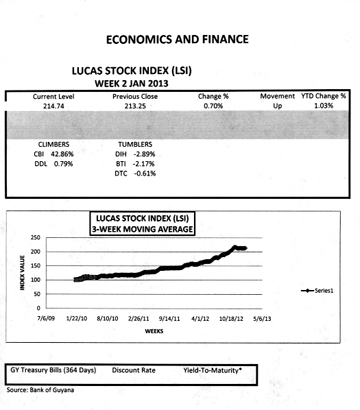The Debate
The issue of budget deficits has been a hot topic of debate in the business, academic and international financial community for some time now. The debate has revolved around whether or not governments should be carrying budget surpluses or at least operating on a balanced budget. At the other extreme are the views that deficits are necessary from time to time. The debate is not a new one as the recent high-profile debate in the USA about the “fiscal cliff” reminds us. Studies have shown that the debate has been raging from the time governments started raising revenue through taxes. While there is no open debate on the issue of budget deficits in Guyana, the management of the public finances is still of concern as pointed out in a series of articles on the subject of deficits and debt by Prof. Clive Thomas. As the Government of Guyana collects taxes to finance its activities and deficits, the question remains who should be footing the bill and calling the tune? The answer will extend beyond this article.
Not a sterile one
As an attempt is made to answer the question, it must be kept in mind that the debate about deficits or surplus is not a sterile one, especially since Guyana has entered its new budget season. The discourse about deficits and surplus contains active ingredients like unexpected floods and the mishandling of public protests that can change the operating environment rapidly and unpredictably. These unexpected developments along with other unavoidable commitments, like protecting the vulnerable and poor and undertaking massive public works, often contribute to governments having to borrow money to finance their deficits. In Guyana’s case,

